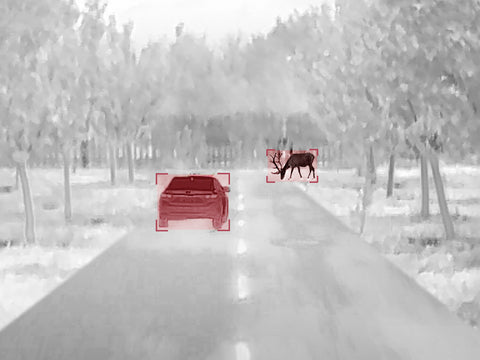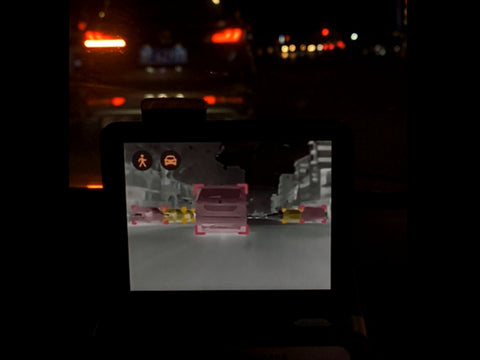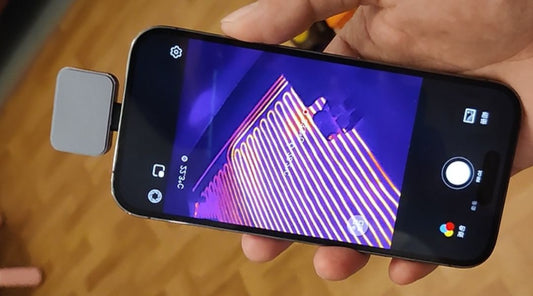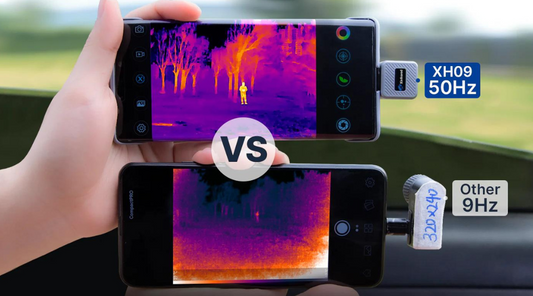See in the Dark: How Automotive Night Vision Tech Works
Driving at night can be a daunting task. The lack of visibility, combined with the natural drop in alertness that comes with the darkness, can turn an everyday commute into a high-stakes adventure. But what if you could enhance your ability to see through the darkness, just as a superhero would with their x-ray vision? Enter the world of automotive night vision technology, a cutting-edge innovation that's transforming the way we drive after sunset.
The Science Behind Night Vision
Thermal imaging technology, which is used in systems like the InfiRay NV2 Night Vision, operates differently from traditional night vision systems. Instead of relying on infrared light to illuminate the scene and create an image, thermal imaging cameras, also known as thermographic cameras, detect the inherent heat emitted by objects.
All objects with a temperature above absolute zero emit thermal radiation. This radiation is invisible to the human eye but can be detected by specialized cameras. Thermal imaging cameras have sensors that are sensitive to this thermal radiation, allowing them to create an image based on the temperature differences within the scene.

The Evolution of Night Vision in Cars
In the past, night vision systems were reserved for high-end luxury vehicles. However, with advancements in technology and a push for increased road safety, these systems have become more accessible and affordable. Today, companies like InfiRay are leading the charge in making night vision technology a standard feature in vehicles of all types.
InfiRay NV2: A Leader in Car Night Vision Tech
The NV2 Automotive AI Night Vision system from InfiRay is a prime example of how this technology has evolved. With a long-range vision of up to 650 feet and an ultra-responsive driver assistance system that reacts in just 0.1 seconds, the NV2 is designed to handle nighttime, foggy, rainy, or snowy conditions with ease. It's not just a luxury feature; it's a safety tool that's essential for car owners, outdoor enthusiasts, and everyday drivers alike.

How Auto Night Vision Tech Enhances Safety
The primary benefit of automotive night vision technology is the increased safety it offers. By providing drivers with a clearer view of the road ahead, night vision systems can help prevent accidents caused by poor visibility. This is particularly useful in rural areas where wildlife frequently crosses roads, or in urban settings where pedestrians may suddenly step into traffic.
The Role of AI in Car Night Vision
Artificial intelligence plays a crucial role in modern night vision systems. AI algorithms help to identify and categorize objects in the vehicle's path, providing the driver with valuable information about potential hazards. This not only includes people and animals but also stationary objects like fallen trees or road debris that might otherwise be difficult to spot.

The Future of Night Vision in Automotive
As technology continues to progress, we can expect to see even more sophisticated night vision systems integrated into vehicles. These systems will likely become more affordable and widely available, making them a standard feature in new cars in the not-too-distant future.
The Potential for Integration with Other Systems
There's also potential for night vision technology to be integrated with other vehicle safety features, such as adaptive cruise control and collision avoidance systems. This could lead to a more holistic approach to vehicle safety, where multiple systems work together to provide the driver with a comprehensive understanding of their surroundings.
Conclusion
The advent of automotive night vision technology is a significant step forward in the quest for safer roads. Systems like the NV2 from InfiRay not only offer a new level of visibility for drivers but also represent the potential for a safer, more secure driving experience.
By embracing this technology, we can reduce the number of accidents that occur due to poor visibility and ensure that our loved ones arrive at their destinations safely. As we move into an era of increasingly connected and intelligent vehicles, night vision technology is set to play a pivotal role in shaping the future of automotive safety.




